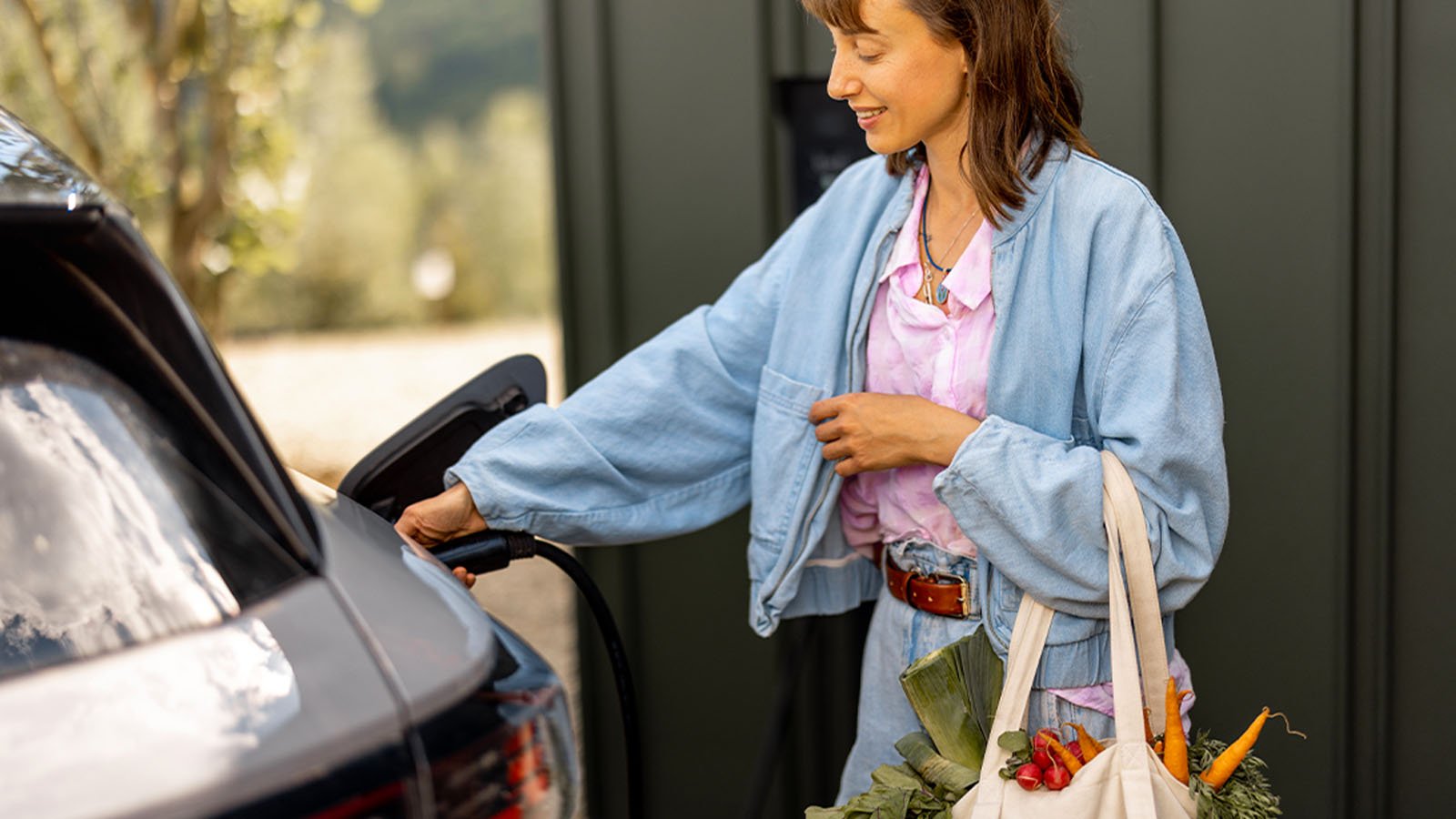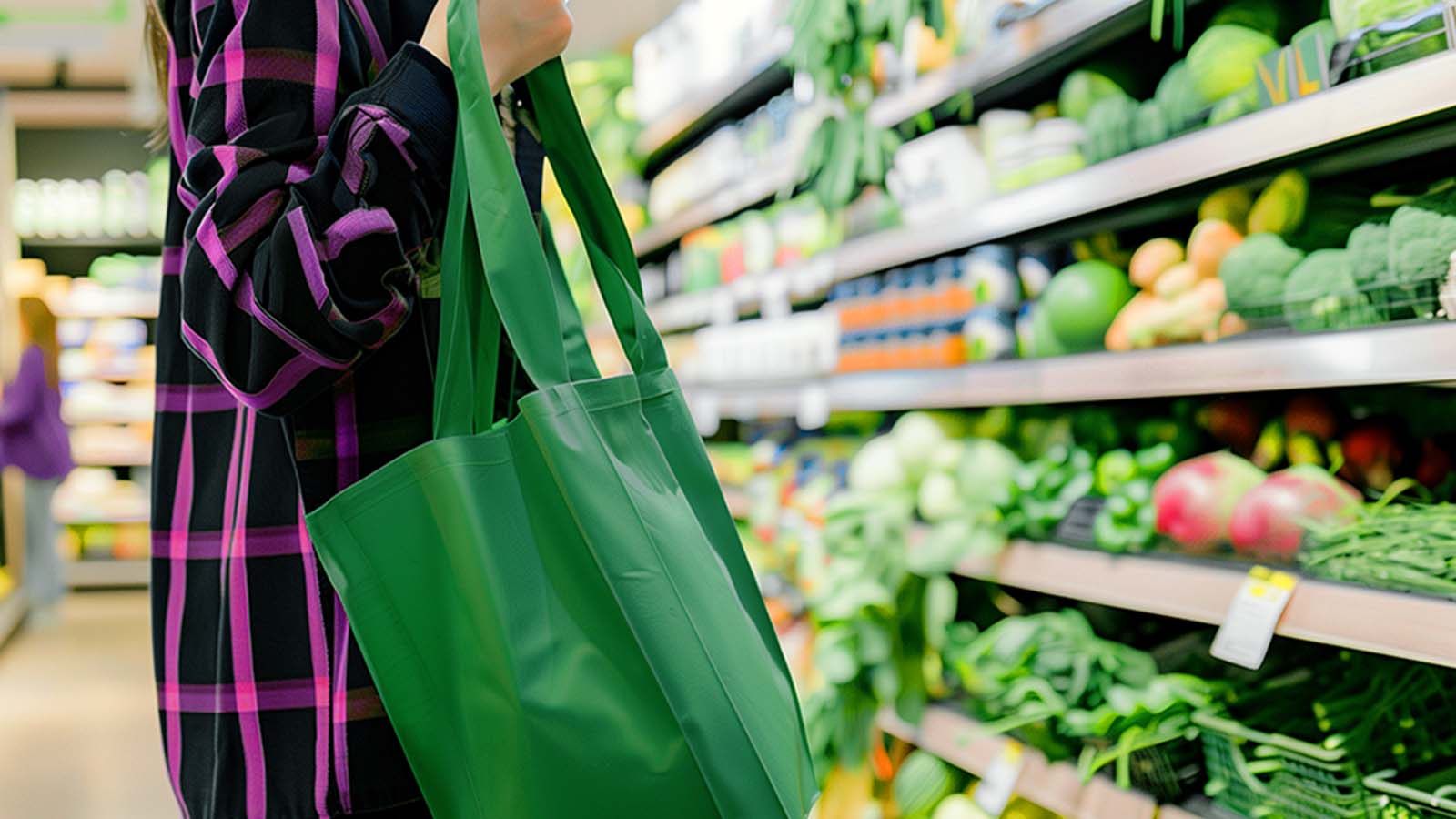5 min read
Loyalty Meets Health & Wellness: Driving Healthier Choices in Grocery Retail
Health and wellness considerations influence consumers' grocery purchasing decisions; loyalty programs can tap into this demand through targeted engagement
Get the latest insights, research and news delivered straight to your inbox.
Plus, enter to win the 2nd edition of Omnichannel Retail by Tim Mason & Sarah Jarvis!
No spam. We promise. 💜
Featured Case Study:
See how Eagle Eye helped Giant Eagle relaunch myPerks, delivering 25M+ personalized offers monthly and boosting loyalty program ROI.
Contact us to find out how we can enable your teams on our platform.

4 min read
 Eagle Eye
on
29 May, 2025
Eagle Eye
on
29 May, 2025

Grocery loyalty programs hold a unique and strategic position in shaping consumer behavior, offering retailers deep insights into purchasing decisions and the ability to influence them in the future. However, as sustainability becomes a defining consideration for many shoppers, retailers' loyalty programs must adapt, offering value that aligns with this increasingly prominent customer preference.
Despite offering broad value in many areas, most grocery loyalty programs are not fully addressing the sustainability expectations of today’s consumers. While sustainable products have proliferated on store shelves, many programs have been slow to integrate sustainability rewards, missing a critical opportunity to engage shoppers seeking more environmentally conscious options.
This dynamic is neatly underscored by two findings in our recent Green Loyalty study of 1,096 U.S. and Canadian adults, which explored their opinions and preferences about sustainability, grocery shopping habits and loyalty behaviors. While 56% of surveyed consumers say sustainability is extremely or very important to their grocery purchasing decisions, almost half (46%) of the loyalty programs they belong to don’t offer any sustainability-related rewards.
Although retailers should be credited with expanding their selection of sustainable products, many have yet to bring that focus into their loyalty programs—a missed opportunity. Those who integrate sustainability into their loyalty strategies will be well-positioned to meet the rising consumer demand in this critical area.
Even sustainability initiatives can align with tiered loyalty programs – for example, top-tier members might earn exclusive eco-friendly rewards or green perks, reinforcing the brand's values while boosting engagement.
In the first article of our survey series, Sustainable Spending: The Role of Sustainability in Consumer Retail Decision-Making, we reported that a majority of North Americans prioritize sustainability in their grocery shopping. Still, a significant gap remains between consumer expectations for sustainability-oriented incentives and what retailers deliver.
Whether this discrepancy is attributable to a lack of sustainability options available in grocery loyalty programs or consumers simply unaware of them, the result for grocery retailers is the same. By not making sustainability-related rewards available and visible to consumers, they are foregoing the chance to engage and offer value to their customers in a way they clearly care about.
Our survey found that different demographic groups are more aware of sustainability options in their loyalty programs. For example, 53% of Gen Z, 50% of Millennials, and 54% of families with children report that "all," "most," or "some" of their loyalty programs offer sustainability rewards. These findings reflect the higher priority these groups place on sustainability but highlight the missed opportunity to raise awareness of these options among other cohorts; demand for sustainable shopping choices remains strong among Gen X (57%) and Boomers (40%), indicating the potential for broader engagement.
Given the cross-generational preference for sustainable shopping options, the potential impacts for grocers embracing sustainability throughout all aspects of their business could be significant. Our survey found that if grocery retailers more specifically offered sustainable options through their loyalty program, it could boost loyalty and retention, drive incremental revenue, increase average basket value and influence where consumers choose to shop.
Simple sustainability incentives may not be enough to convert shoppers into brand advocates, however. When we asked, "How do you feel about retail brands that offer sustainability-related rewards or incentives?" 68% of consumers responded positively, indicating they value the brand for helping them make more sustainable shopping choices or supporting environmental efforts. Yet only 17% said this would make them view the brands more favorably. This number is low even with sustainability enthusiasts, 24% of whom stated they would have a more favorable perception of the brand. Conversely, 28% of Canadians said they would view the brand more favorably than just 16% of US consumers.
These findings suggest that while consumers appreciate sustainability rewards in loyalty programs, they don’t necessarily link those efforts to the brand itself. Simply offering sustainability incentives isn’t enough to build stronger brand affinity. Retailers need to go further and show that they genuinely share their customers' values on this important issue.
When retailers demonstrate shared values, the results are striking. Almost half (48%) of the consumers we surveyed said it was "extremely" or "very" important to shop with a retail brand that aligns with their views on sustainability, environmental awareness, responsibly sourced products and carbon impact. Another 33% said it was somewhat important, reinforcing the idea that sustainability indeed influences where consumers shop. By incorporating sustainability-related rewards into their loyalty programs alongside stocking more sustainable products and adopting eco-friendly practices—grocery retailers can more effectively show their commitment to shared values and attract greater customer loyalty.
How can grocers use their loyalty strategies to show consumers they share the same sustainability values? The most direct (and perhaps most obvious) way is by offering incentives for sustainable purchases within their loyalty programs. With this approach, retailers can shape behavior over the long term, which impacts the consumers’ future purchase habits as well as the immediate purchase decision of that day.
However, loyalty program members must perceive any sustainability-related incentive as valuable—being sustainable alone isn’t enough to drive action. This need for perceived value is largely because, in today’s economy, consumers continue to prioritize getting the most for their money in nearly every purchasing decision.
Our survey found that a significant majority (71%) of consumers would choose a more sustainable product over their usual purchase if their loyalty program offered an incentive like a points “bonus” or multiplier. However, 37% stressed that the incentive must be valuable enough to motivate them, reaffirming shoppers’ focus on value as a driver in almost every purchasing decision. A retailer could incentivize and reward customers in their existing points/cashback currency for buying sustainable products to achieve this. They could also introduce new "green" currency, which loyalty members could earn for sustainable behavior and redeem exclusively for sustainable products, sustainability-related rewards, or donated to selected sustainability-related charitable causes.
This approach for grocery loyalty programs to support sustainability–by allowing members to redeem points for donations to environmental, social, or sustainability-related causes like carbon offsets–is a desirable and low-barrier option. While not as direct as encouraging the purchase of sustainable goods, this way (and adopted by loyalty programs in other industries) can be a good starting point for more cautious retailers. This approach also has consumer interest: 26% have donated points to a sustainable cause, including 46% of Gen Z, 39% of Millennials, and 39% of families with children.
Loyalty-integrated sustainability incentives are just one approach grocers can take. As we highlighted in Sustainable Spending, grocers can also support loyalty members by offering eco-friendly meal planning, tracking the carbon footprint of their purchases, or encouraging the use of reusable bags over plastic.
What do all these findings add up to? Consumers are clearly demanding sustainability, and meeting this demand can significantly impact a retailer’s performance. To fully capitalize, grocery retailers need the right technology and support to embed sustainability rewards into their loyalty programs, prioritize incentives for sustainable purchases, and provide more options to shoppers for donating points to sustainable causes.
By taking these steps, retailers show their commitment to sustainability and position themselves to attract new customers, boost spending, and drive long-term loyalty. Grocers must assess whether their current strategies align with this growing demand or risk missing out on the competitive edge of sustainability.
Download our North American survey on sustainability, health and wellness and loyalty behaviors here, or contact us to learn how Eagle Eye can help your grocery brand integrate sustainability into your loyalty strategy.
Get the latest insights, research, and news delivered straight to your inbox.
Plus, enter to win the 2nd edition of Omnichannel Retail by Tim Mason & Sarah Jarvis!
No spam. We promise. 💜

5 min read
Health and wellness considerations influence consumers' grocery purchasing decisions; loyalty programs can tap into this demand through targeted engagement
![The Grocery Loyalty Landscape in Canada and the United States [A Survey Snapshot]](https://eagleeye.com/hubfs/images/featured/north-america-grocery-loyalty-snapshot.jpg)
4 min read
Discover the current grocery loyalty landscape in Canada and the USA. Download the North American grocery loyalty snapshot or read the full report.

5 min read
A new study shows sustainability is key to North American consumers' purchases and loyalty, offering retailers a chance to reach eco-conscious shoppers.